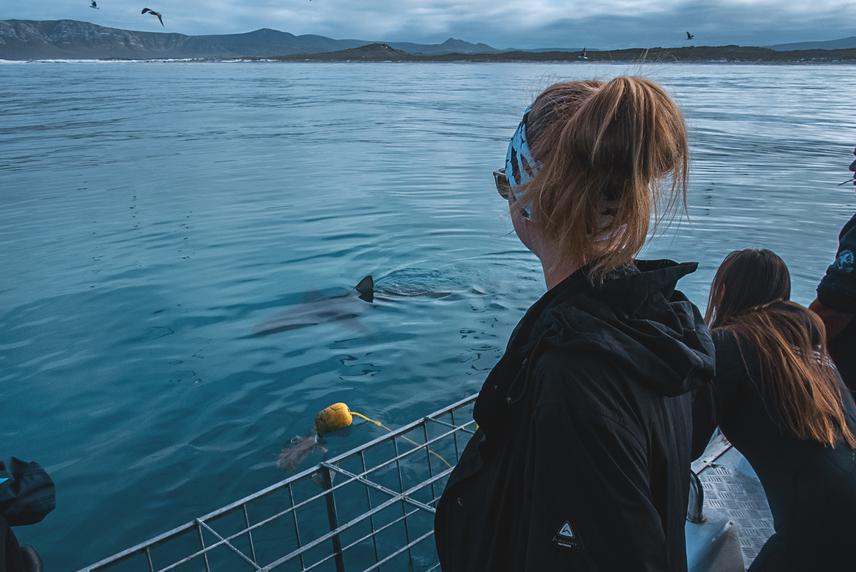Kristina Loosen
With over 200 recorded shark species the South African coastline is among the top five global hot spots for elasmobranch biodiversity and is considered a living laboratory for assessing the effect and impact of rapidly occurring climate changes. However, monitoring of species diversity of elusive taxa, such as sharks, is notoriously challenging and this restricts effective conservation efforts. Most of the traditional ways to monitor elasmobranch biodiversity are often invasive, time consuming and expensive. In contrast, novel cutting edge genetics analyses, using environmental DNA (eDNA), is rapidly becoming a non-lethal, relatively cheap, and efficient alternative to traditional methods. eDNA technique uses the genetic material shed by organisms that can be filtered from soil, air, fresh and marine water to investigate natural populations. The DNA fragments are amplified through polymerase chain reaction (PCR) and sequenced so that the species present in the area can be determined.

Kristina Loosen looking at a bronze whaler shark (Carcharhinus brachyurus) while she collected her eDNA samples. © Milan Jandik.
Sharks and rays are crucial to keep ecosystems functional, but sadly they have been ranked at a considerably greater risk of extinction than most other vertebrate groups. In the first global assessment by the International Union for Conservation of Nature (IUCN) in 2014, it was shown that 25% of sharks were threatened with extinction, which includes species listed as vulnerable, endangered or critically endangered, which makes it all the more essential to use affordable, non-invasive monitoring techniques.
To date eDNA hasn’t been used in South Africa to specifically assess shark species diversity, thus this study aims to provide the baseline for the application of this cutting-edge technique for efficient shark monitoring. The use of eDNA will allow estimating the presence of species-specific shark DNA in the water samples, see shifts in the distribution of shark species as well as recover possible overlap with implemented or planned marine protected areas (MPAs). The investigation of current shark species diversity and distribution in South Africa will be for key for the implementation of evidence-based management. The goal of our study is thus to streamline the best eDNA protocols for national and international implementation of this novel technique for sharks and ultimately support the long-term conservation efforts for South African marine biodiversity.
Header: PhD student Kristina Loosen prepping the Niskin bottle for water sampling at 10 m depth. © Beate Loosen.